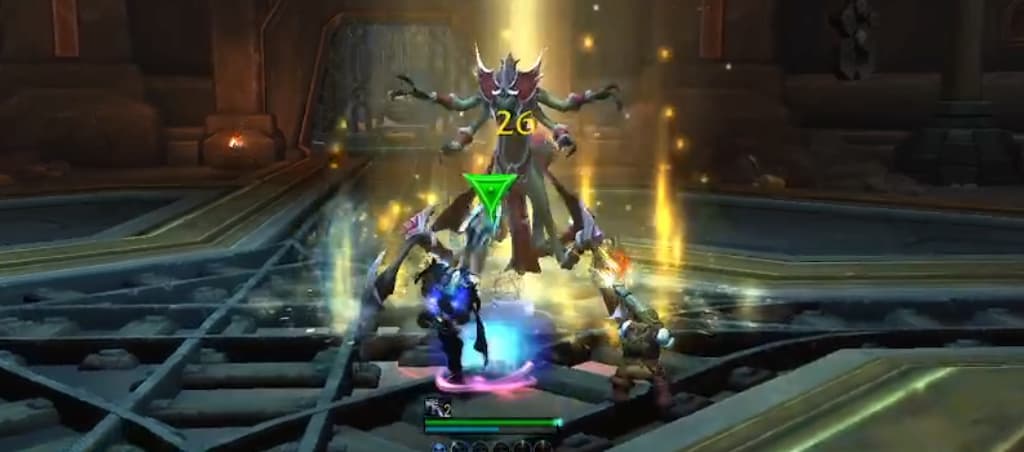多くの人の目標ワールド オブ ウォークラフト新しい拡張のようなプレイヤー内なる戦争ドロップはできるだけ早くレベル80にすることです。ここでは、時間を節約しながら旅行に役立つ基本的なヒントをいくつか紹介します。
以前とは異なり おお拡張、完了内なる戦争(TWW) キャンペーンのストーリーでは、レベル 80 に到達するのに十分な XP が提供されません。せいぜい、レベル 77 から 78 の間になります。つまり、レベル 80 に到達するには、XP を獲得する別の方法が必要です。Blizzard には、新しいボーナス XP が含まれていました。メインでレベル 80 に到達した後、代替キャラクターをレベルアップしたいプレイヤー向けのシステム。
WOW: The War Within でレベル 80 に早く到達するためのヒント

とTWW8 月 22 日に早期アクセスを通じてリリースされ、正式にリリース8 月 26 日には、多数のプレイヤーが同じクエストを完了しようとすることが予想されます。ここでは、混雑を避けながらより速く進めるために私が途中で見つけたいくつかのヒントを紹介します。
- 焦点を当てるTWWキャンペーンクエスト最初の 2 つのゾーン、Isle of Dorn と The Ringing Deeps のみを通過します。
- このキャンペーンでは、新しい機能をテストできますデルブスシステムそして、The Ringing Deeps ゾーン内のダンジョンを完了する必要があります。Delve を再実行しないでください付与されるXPは少ないですが、The Ringing Deeps にいる間に XP を獲得する農業をしてクエストを完了しようとしているプレイヤーが多すぎない限り、問題ありません。
- ヒットするまで待つことをお勧めしますサイドクエストに到達するまでハロフォールゾーン。ハロウフォールのレベル要件は 75 ~ 78 で、すべてのサイド クエストを始めるのに理想的なゾーンです。ほとんどのプレイヤーはドーン島のストーリーラインの章を完了した後、The Ringing Deeps にはまってしまうだけでなく、群衆も間引く必要があります。
- 最後のゾーンは、アズジ・カヘト、サイドクエストを完了して、完了するまでにレベル80に到達することを強くお勧めします。内なる戦争キャンペーン。
- あなたの職業の 1 つが以下であることを確認してください。採集の職業(採掘と薬草学)、材料を集めるたびに XP を獲得できます。残念ながら、スキニングでは XP は得られません。
- ファームXPより高いTierのDelve。一部の低層のデルフは、次のゾーンとそのゾーンのボスに必要なレベルに到達するのに役立ちます。
- ファームXPダンジョンレベル75に達した後。
- クラフトレベル78に達した後にXPを獲得します。
The War Within での WOW Warband メンタリング ボーナス XP
メイン以外でXPを稼ぐ必要があるTWWストーリーラインのクエストは少し面倒ですが、Blizzard は、と呼ばれる新しいボーナス XP システムを通じてその不便さを補っています。ウォーバンドの指導。主人公がレベル 80 に到達すると、おおWarband メンタリング システムがロック解除されました。によると、それがどのように機能するかは次のとおりですワウヘッド。
- 最初の代替キャラクターにはXP に 5% のボーナスすべてのタスクのレベルを 80 にしたとき。
- 追加のオルトごとに、レベル 80 のキャラクターごとに XP に 5 パーセントのボーナス (最大 25 パーセント) が付与されます。
- レベル 80 に到達すると、Warband Mentors ボーナスを獲得できます。レベル 80 の 4 人のキャラクターで 5 番目の Alt をレベルアップすると、すべてのタスクで 25% の追加 XP を獲得できます。
最初の選択肢を支援するにはおおキャラクターがレベル 80 に到達したら、初期ゾーンのサイドクエストを完了してウォーバンド メンタリング システムを利用してください。内なる戦争。追加の 5% XP はすぐに加算され、これまでよりも早く 2 番目の Alt を開始できるようになります。
